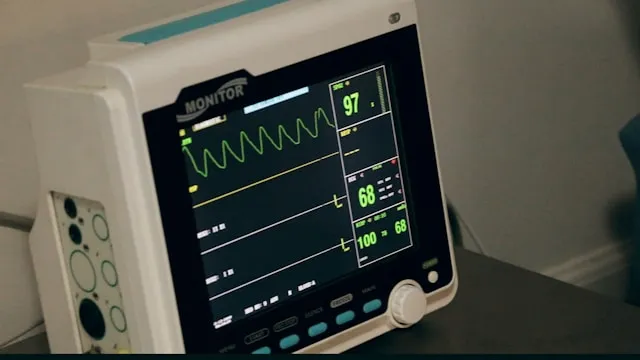Heart failure is a serious medical condition where the heart is not able to function effectively and does not pump blood to all parts of the body normally. Approximately 1% of the Indians below 65 years of age suffer from heart failure, whereas around 7% in the age group 75 to 84 years experience this medical condition. Heart failure is a major cause of hospitalisation in patients over 65 years of age.
Heart Failure Warning Signs:
- Chest Pain
- Shortness of Breath
- Light Headed Feeling and/or Fainting
- Increased Heart Rate
- Persistent Coughing or Wheezing
- Buildup of Excess fluid in Body Tissues
Contrary to the belief that heart 'stops' functioning during heart failure, this medical condition means the heart is finding it difficult to meet the needs of the body. Heart failure may be difficult to diagnose, but if diagnosed done during the initial hours or as cardiologists say during the golden hour, the chances of survival increases by 68%. While it may be difficult to acknowledge any single symptom as a warning sign, a quick check with typical symptoms should help identify the impending heart failure and seeking immediate medical attention. Often people assume that people with a history of any past heart-related illnesses or a genetic background only encounter such occurrences, however, the rule is that anyone who manifests a couple of these symptoms should immediately seek medical attention.
Chest Pain
Chest pain due to improper functioning of the heart can be felt anywhere between upper abdomen to the neck, including the shoulders and upper arms. The pain can be in form of burning sensation, pressure, extreme discomfort or aching feeling. If you are experiencing any form of chest pain, then immediately lie down and rest. If the chest pain lasts for more than 15 minutes (even after laying down or taking medicine prescribed by the cardiologist), then you should call for help immediately.
Shortness of Breath
This is a common symptom for most of the patients suffering from heart failure. Shortness of breath may be experienced suddenly. It usually manifests as breathlessness even while resting or laying down. In some cases, it may be so severe that it leads to waking you up from sleep. You may also face trouble in breathing while lying flat and may wake up tired and anxious. Shortness of breath occurs because the heart is not functioning normally, leading to blood backing up in the blood vessels. It may also cause fluid to leak into the lungs, leading to congestion. If the breathlessness persists and keeps getting severe, then you should call for emergency help immediately.
Light Headed Feeling and/or Fainting
Since the heart is not functioning effectively, it is not able to pump enough blood to meet the needs of all the body tissues. This leads to a reduction in blood flow to the brain and making you feel light-headed or dizzy. Fainting or sudden loss of consciousness is due to serious lack of blood flow to the brain. Dizziness is also a common sign of people who experience heart failure, especially while walking fast or suddenly standing up. It may be due to an abnormality of heart function, rhythm or due to narrowing of a valve. It is important to know that dizziness is commonly experienced by patients who are getting medical treatment for heart problems. Typical medications like diuretics, ACE inhibitors, ARBs and beta blockers all reduce blood pressure and improve heart functioning. However, since the blood pressure is lower than normal, cardiac patients feel dizzy while suddenly standing up or walking very fast.
Increased Heart Rate
Patients experiencing increased heart rate due to heart failure have reported a feeling of heart racing and beating with varying strengths. Feeling of palpitations and heart throbbing suggests that the heart would be pumping faster to compensate for the reduced functional capacity of the heart. If the increased heart rate is making you feel light-headed and leading to breathlessness, then you should seek emergency help immediately.
Persistent Coughing or Wheezing
Persistent coughing with a whistling sound or heavy breathing is a sign of heart failure. In some cases, patients with heart failure develop a cough tinged with blood. This typically happens due to infection in the lungs. Persistent coughing happens due to congestion in lungs, thereby increasing the efforts in breathing. If the wheezing is worsening with time and causes shortness of breath, then you should seek medical attention immediately.
Buildup of Excess fluid in Body Tissues
As the blood flow from the heart slows down, blood returning to the heart through the veins pools up, which leads to fluid retention and is reflected as swelling in the feet, ankles, legs or abdomen or weight gain. If you are undergoing a heart treatment and your cardiologist has recommended modifications in diuretic medications, then you should do that. Else, consult your cardiologist as soon as possible.
Read about: What is a heart attack & Steps to Prevent Heart Failure
Get Help From Credihealth -
Credihealth is India's No.1 medical assistance company and has served more than 100,000 cardiac patients in India. Credihealth helps people find the right doctor at trusted hospitals, book priority appointments and get an estimated cost for treatment. A team of medical experts talk to the patients, understand their symptoms and suggest specialist doctors and hospitals for their treatment. If you are facing signs of heart failure and want to learn more about treatment, you should go to the MS Ramaiah Narayana Heart Centre.

Reviewed by







